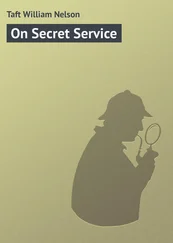William Fitzpatrick - Secret Service Under Pitt
Здесь есть возможность читать онлайн «William Fitzpatrick - Secret Service Under Pitt» — ознакомительный отрывок электронной книги совершенно бесплатно, а после прочтения отрывка купить полную версию. В некоторых случаях можно слушать аудио, скачать через торрент в формате fb2 и присутствует краткое содержание. Жанр: foreign_antique, foreign_prose, на английском языке. Описание произведения, (предисловие) а так же отзывы посетителей доступны на портале библиотеки ЛибКат.
- Название:Secret Service Under Pitt
- Автор:
- Жанр:
- Год:неизвестен
- ISBN:нет данных
- Рейтинг книги:5 / 5. Голосов: 1
-
Избранное:Добавить в избранное
- Отзывы:
-
Ваша оценка:
- 100
- 1
- 2
- 3
- 4
- 5
Secret Service Under Pitt: краткое содержание, описание и аннотация
Предлагаем к чтению аннотацию, описание, краткое содержание или предисловие (зависит от того, что написал сам автор книги «Secret Service Under Pitt»). Если вы не нашли необходимую информацию о книге — напишите в комментариях, мы постараемся отыскать её.
Secret Service Under Pitt — читать онлайн ознакомительный отрывок
Ниже представлен текст книги, разбитый по страницам. Система сохранения места последней прочитанной страницы, позволяет с удобством читать онлайн бесплатно книгу «Secret Service Under Pitt», без необходимости каждый раз заново искать на чём Вы остановились. Поставьте закладку, и сможете в любой момент перейти на страницу, на которой закончили чтение.
Интервал:
Закладка:
Teeling, one of the Northern leaders, who had been closely associated with Turner, gives a curious glimpse of the easy intercourse which Castlereagh would maintain with his captives. Sometimes he made the arrests himself in the first instance, and afterwards could charm his prisoners by drawing silken bonds around them. Teeling was accompanied by his father on horseback, when 'we met,' he writes, 'Lord Castlereagh, who accosted us with his usual courtesy. We had proceeded up the street of Lisburn together, when, having reached the house of his uncle, the Marquis of Hertford, we were about to take leave of his lordship. "I regret," said he, addressing my father, "that your son cannot accompany you," conducting me at the same moment through the outer gate, which, to my inexpressible astonishment, was instantly closed, and I found myself surrounded by a military guard.' Teeling, later on, describes a visit paid by Castlereagh to him when a prisoner: —
Fatigued, and apparently much dispirited, Lord Castlereagh entered the room. He possessed the most fascinating manner and engaging address, with a personal appearance peculiarly attractive, and certainly not in character with the office he had that day assumed. For though national pride was extinct in his soul, the graces of nature were not effaced from the form, nor the polished manners of the gentleman forgotten in the uncourteous garb of the officer of police. He regretted that in his absence I had been subjected to the painful restraint of an additional guard. It was not his desire that they should have been placed within my room. A slight repast had been prepared for him, of which he pressed me to partake. The wine was generous, his lordship was polite, and the prisoner of State seemed for a moment forgotten in the kinder feelings of the earlier friend. [Lord Castlereagh then informed Teeling that they had that day arrested Neilson and Russell.] 'Russell!' 137 137 Neilson, Russell, Teeling, and Turner belonged to the Ulster branch of the organisation. Russell, who had been a captain in the 64th Regiment, and a J. P. for co. Tyrone, remained a prisoner until 1802, and, on connecting himself with Emmet's scheme, was beheaded October 30, 1803. Samuel Neilson, son of a Presbyterian minister, died, after many exciting vicissitudes, on August 29 in the same year.
said I. 'Then the soul of honour is captive! Is Russell a prisoner?' Lord Castlereagh was silent. He filled his glass – he passed me the wine. Our conversation had become embarrassing… 138 138 Personal Narrative , by Charles Hamilton Teeling. His daughter became the first wife of Lord O'Hagan.
CHAPTER VII
DR. MACNEVIN'S MEMORIAL INTERCEPTED
Although the spy did not confide to Lord Downshire until October 1797 his name and secrets, there is reason to believe that he had furnished information previously. To enhance his importance he probably said nothing of this. As Mr. Froude observes, he painted his own conduct in the colours he thought best. This man had long played fast and loose. So early as May 1797 Turner was viewed with suspicion. The Castlereagh Papers contain a bundle of intercepted letters addressed by Reinhard, the French Minister at Hamburg, to De la Croix, head of the Foreign Office, Paris, of whom Tone often speaks with affection. 139 139 Castlereagh , i. 282-292.
These letters, as already stated, mention Turner under the name of Furnes, which we learn from the Castlereagh Papers was an alias of Turner. 140 140 Ibid. , General Index, iv. 504.
He is praised for his zeal and patriotism; but in one letter Reinhard is found struggling with a painful misgiving. The suspicion is so dark that he does not like to write even the name of Furnes, but makes dots to tally with the letters composing it, and no name was better known to De la Croix. At last Reinhard tries to banish the thought as an unworthy suspicion; and a subsequent letter of his reinstates Turner in full prestige.
The letter which expresses suspicion bears date May 31, but is confusingly assigned, in the Castlereagh Papers, to the year 1798. Its reference to Hoche, however, shows that it was written during the previous year – his death having occurred on September 15, 1797.
You must have heard [writes Reinhard to De la Croix] of the apprehension of two committees of United Irishmen at Belfast, and the publication of the papers seized, made by the secret committee of the Parliament of Ireland. 141 141 Further on will be seen Portland's caution to Castlereagh as to the means to be taken by the Secret Committee of the Irish Parliament in order to divert suspicion from their spy.
Among these papers is a letter from the provincial committee, informing those of Belfast that the executive committee having conducted itself in an improper manner, the provincial committee thought fit to dissolve it, retaining however, two-thirds of the former members. This letter has been printed in London in the True Briton , a ministerial paper. It is very remarkable that … should never have mentioned that circumstance to me. Supposing, which is very probable, that this reorganisation of the executive took place before the departure of … [from Ireland], it is natural enough to suppose that … should find himself among the excluded members . The opinion that I have formed of him … [adds Reinhard in words worthy of a true diplomat] is, that he is a man of haughty and violent character, without, on that account, stooping to dissimulation and deceit; so, in order to revenge himself on his countrymen, he may have betrayed his cause to Mr. Pitt. [Reinhard goes on to say that] It was letters of Lord Edward Fitzgerald which certified that this man who called upon me was the person sent to me by Lady Fitzgerald on his arrival. 142 142 The letter, of which this is an extract, appears in the Castlereagh Papers (i. 275-6). It was the interest of the spy that this letter should not be seen at the Foreign Office, Paris. It could do him no harm in the eyes of Pitt. A second intercepted letter from Reinhard states that consistently with his duties he sent Samuel Turner [of Hamburg] to General Hoche (see Castlereagh , i. 285). Tone mentions in his diary that Hoche one day 'seemed struck when I mentioned Hamburg, and asked me again was I going hither. "Well then," said he, "perhaps we may find something for you to do there. There is a person there whom perhaps you may see."' Tone muses, 'Who is my lover that I am to see at Hamburg, in God's name?' ( Diary , ii. 341.) His diary is relinquished, however, just as he gets there, and his death in an Irish prison occurred soon after.
It seems needless to point out that this must be the 'person' whom Mr. Froude describes as being introduced by Lady Edward Fitzgerald, and having the ear of Reinhard at Hamburg; and there is hardly less doubt that the man thus noticed was the same who, having got into debt with his friends, addressed himself to Pelham as early as 1796. His secret letter to Pelham will be seen presently. Meanwhile the same sensitive pride and the same revengeful spirit when that pride was once wounded is also traceable in the details revealed to Lord Downshire next year. Judging from the slippery and impulsive character of the man, I cannot doubt that previous to his mission to London in October 1797, for the purpose of making a final bargain with Pitt, he had coquetted with Dublin Castle.
Lewins and Turner were rival envoys – Lewins represented the Leinster Directory; Turner claimed to speak for Ulster. Of Lewins, who stands above all suspicion, Reinhard writes to De la Croix in 1797: – 'I think L… incapable of treachery, but capable of imprudence. I should not answer thus concerning the other . What seems further to concur in the support of my hypothesis is, that Mr. L. before his departure made it a point of great importance to ascertain whether there was any other envoy from Ireland, who addressed himself to me, and that he begged me not to give my confidence to any other than to him alone. I refrained from giving these tidings to General Hoche, not only because my means of corresponding with him are uncertain, but because all the letters from Frankfort announce his departure for Paris.'
Читать дальшеИнтервал:
Закладка:
Похожие книги на «Secret Service Under Pitt»
Представляем Вашему вниманию похожие книги на «Secret Service Under Pitt» списком для выбора. Мы отобрали схожую по названию и смыслу литературу в надежде предоставить читателям больше вариантов отыскать новые, интересные, ещё непрочитанные произведения.
Обсуждение, отзывы о книге «Secret Service Under Pitt» и просто собственные мнения читателей. Оставьте ваши комментарии, напишите, что Вы думаете о произведении, его смысле или главных героях. Укажите что конкретно понравилось, а что нет, и почему Вы так считаете.












